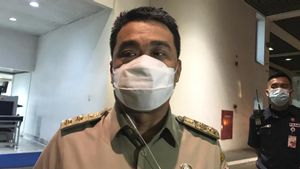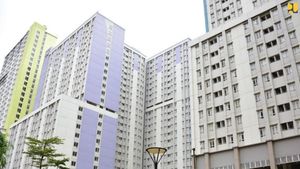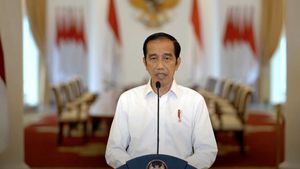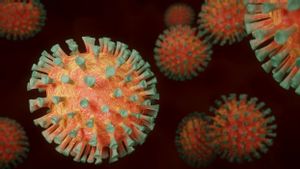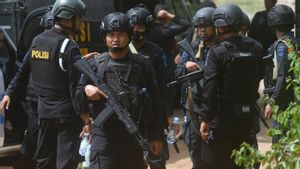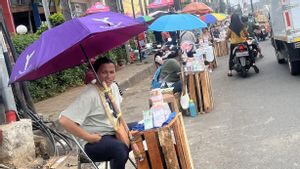JAKARTA - Currently, the pandemic condition in the capital city is showing an alarming trend due to a significant spike in cases. Jakarta's COVID-19 cases this week rose by 7,132 from last week's accumulated cases.
There is also an increase in the occupancy of COVID-19 patients. As of May 14, 2021, the bed occupancy ratio (BOR) specifically for COVID-19 increased significantly.
The isolation bed capacity of 7,341 is filled by 5,752 or has touched 78 percent and the ICU of 1,086 is filled by 773 or 71 percent. In fact, as of May 31, 2021, the capacity of isolation beds in Jakarta is still at 33 percent and ICU at 36 percent.
This has an impact on the occupancy of isolation beds at the COVID-19 Emergency Hospital Wisma Atlet Kemayoran, Central Jakarta. In the last few days, the number of incoming patients has exploded.
In fact, hundreds of patients who will be isolated at Wisma Atlet have to queue along the building's lobby to get a room. Wisma Athlete's capacity today reaches 90 percent.
SEE ALSO:
Finally, the Public Relations Coordinator of the Wisma Atlet COVID-19 Emergency Hospital, Lt. Col. TNI AL M. Arifin asked DKI Jakarta Governor Anies Baswedan to re-implement large-scale social restrictions (PSBB).
"My advice is to tighten the PSBB first for a week, two weeks, until it slows down. So that we can focus on treating patients well. If it has ramped up, please set it up in stages again," said Arifin when contacted, Tuesday, June 15.
According to Arifin, PSBB is an effective measure to suppress the spread of cases. Rules that prohibit restaurants from being closed for dine-in, closed public places, to the implementation of work from home (WFH) for all employees except for the essential sector is needed to prevent spreads.
This is because, according to Arifin, currently, residents have started to ignore health protocols during the period when the restrictions on community activities were implemented.
"Now this must be regulated properly, office clusters must also be regulated properly. This has started to loosen up, like, in Mampang, many offices have worked 100 percent from office. This means that it means being negligent, forgetting about the pandemic, or being desperate," he said.
Seeing the capacity of the COVID-19 isolation beds and ICU which are running low, Arifin is waiting for Anies to issue a decision to tighten mobility in Jakarta until tomorrow.
"Tomorrow. It's going to be a long weekend. Don't take too long. The more people will move, the longer the tracing will take. Later, person A meets B, the tracing is getting longer, it turns out that he is positive," said Arifin.
Responding to this, the Deputy Governor of DKI Jakarta, Ahmad Riza Patria, admitted that his party did not want to implement the PSBB. Currently, DKI applies micro PPKM until June 28.
"The PPKM has been decided in the next two weeks as before," said Riza at the DKI DPRD building.
However, Riza opened the opportunity to apply emergency brakes after the micro PPKM period ended, with a number of studies and considerations of all relevant stakeholders.
"Of course, we consider everything, we discuss, we have dialogue. But what is far more important is how the community can implement the 3M health protocol," he said.
The English, Chinese, Japanese, Arabic, and French versions are automatically generated by the AI. So there may still be inaccuracies in translating, please always see Indonesian as our main language. (system supported by DigitalSiber.id)



